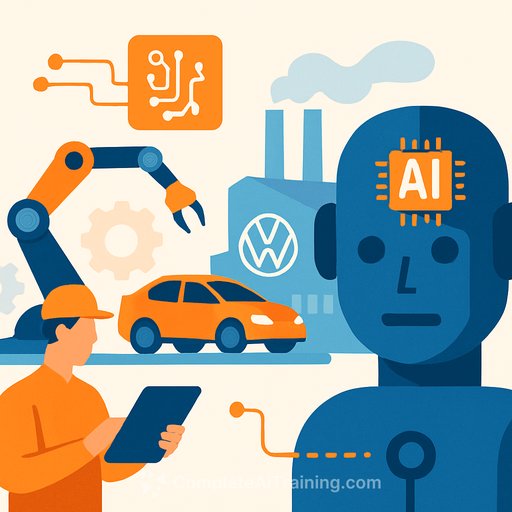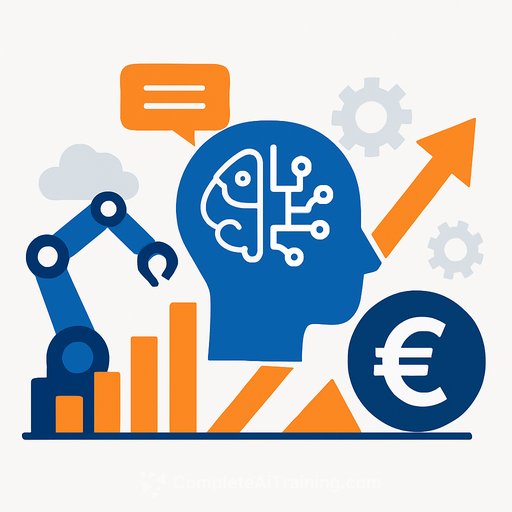Volkswagen Commits $1.18 Billion to AI for Faster Vehicle Development and Increased Efficiency
Volkswagen is set to invest up to €1 billion (approximately $1.18 billion) by 2030 to integrate artificial intelligence throughout its vehicle development, manufacturing processes, IT infrastructure, and cybersecurity. This move targets a reduction in vehicle development time by at least 25%, which translates to roughly a year less in the design and engineering cycle.
Beyond speeding up development, Volkswagen expects AI to boost manufacturing efficiency and improve digital resilience. The company projects potential savings of up to €4 billion by 2035 through these AI-driven improvements.
Widespread AI Implementation Across Operations
Currently, Volkswagen employs more than 1,200 AI applications, with several hundred more in the pipeline. Their AI strategy covers:
- Vehicle development: Collaborations, such as with Dassault Systèmes, are building AI-powered platforms for virtual testing and component simulation, reducing physical prototyping needs.
- Manufacturing: AI optimizes vehicle assembly lines, energy consumption, and materials management, enhancing productivity and sustainability.
- IT and Cybersecurity: AI strengthens defenses against cyber threats while facilitating employee training and knowledge sharing.
Expanding Cloud Infrastructure and Industrial AI Models
To support sensitive data handling and improve digital resilience, Volkswagen plans to scale up its group-wide cloud infrastructure. The company is also exploring industrial AI models tied to Catena-X, a Europe-wide open automotive data platform. Catena-X enables secure data exchange among partners like BMW, BASF, and Mercedes-Benz, fostering collaboration across the automotive supply chain.
Policy and Regulatory Support Critical for AI Growth in Europe
Volkswagen stresses the need for political backing and innovation-friendly regulations to maintain Europe’s competitiveness in AI development. The company calls for targeted incentives to accelerate the commercial rollout of AI solutions emerging from universities and research institutions.
This sizable AI investment highlights Volkswagen's commitment to embedding artificial intelligence as a core component of innovation and operational excellence. IT and development professionals can expect significant transformation in automotive engineering and manufacturing workflows driven by AI technologies.
For those interested in advancing AI skills relevant to industry applications like these, consider exploring specialized AI training courses that focus on practical deployment and development.
Your membership also unlocks:






